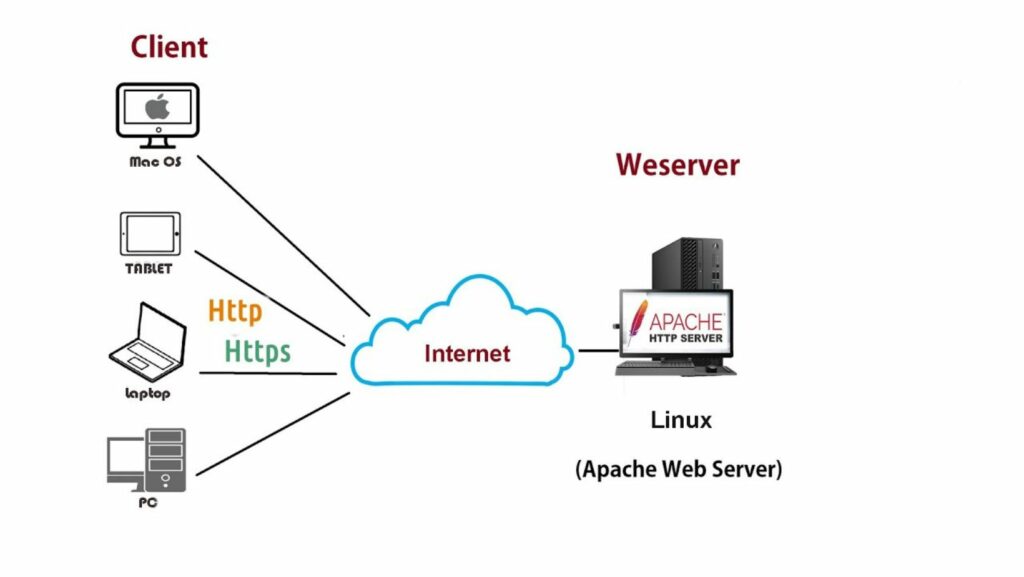
Linux Web Server

Stepping into the realm of web hosting, I’ve come to appreciate the power and flexibility of a Linux web server. From its robust security features to its scalability and cost-effectiveness, Linux stands out as a top choice for hosting websites and applications. Whether you’re a seasoned developer or a small business owner looking to establish an online presence, the reliability of a Linux server can’t be overstated.
In my journey exploring the world of web servers, I’ve found that Linux offers a wealth of tools and resources that make managing a website a breeze. With its open-source nature and vast community support, troubleshooting and customization are seamless. Join me as I delve deeper into the intricacies of Linux web servers and uncover the endless possibilities they offer for hosting your digital projects.
Overview of Linux Web Servers
Key Attributes of Linux Web Servers
Linux web servers are renowned for their unparalleled security measures, making them the top choice for hosting websites and applications. The robust security features of Linux ensure a safe environment for digital projects, protecting them from potential threats and vulnerabilities. With Linux, I benefit from a secure platform that instills confidence in the stability of my online presence.

Linux servers are highly scalable, allowing me to effortlessly adjust resources based on the varying demands of my websites or applications. This flexibility enables seamless expansion or contraction of resources without compromising performance, ensuring optimal functionality at all times. It’s reassuring to know that my digital projects can grow alongside my aspirations without facing technological constraints.
Cost-effectiveness is a hallmark of Linux web servers, offering a budget-friendly solution without compromising on quality or performance. By opting for Linux, I maximize cost-efficiency without sacrificing essential features, making it an ideal choice for developers and small business owners alike. With Linux, I can achieve my hosting goals without exceeding my budget, ensuring a sustainable and economically feasible hosting solution.
Common Uses for Linux Web Servers
Linux web servers are versatile platforms with a wide range of applications across various industries. One common use of Linux servers is website hosting, where individuals and businesses can host their online presence securely and efficiently. Whether it’s a personal blog, e-commerce site, or corporate webpage, Linux servers provide the necessary infrastructure for a seamless online experience.
Another prevalent use of Linux web servers is application hosting, allowing developers to deploy and manage their software applications with ease. From simple web applications to complex enterprise solutions, Linux servers offer the stability and performance required to support diverse software projects. With Linux, I can confidently host my applications, knowing that they are in capable hands with robust server resources.
Choosing the Right Linux Web Server
Factors to Consider

When choosing a Linux web server, certain factors play a crucial role in determining the best fit for your needs. One essential factor to consider is the server’s performance capabilities. Ensure the server can handle the expected web traffic without compromising speed or uptime. Additionally, consider the level of support provided by the server’s community or vendor. Opt for a server with strong community support or reliable vendor assistance for any technical issues that may arise.
Another vital factor is the security features offered by the web server. Prioritize servers with robust security measures to protect your data and ensure a safe online environment for your users. Compatibility with different software and applications is also key. Select a Linux web server that supports the tools and technologies necessary for your website or applications to function seamlessly.
Popular Linux Web Server Options
There are several popular Linux web server options available in the market, each with its unique features and strengths. Apache HTTP Server is one of the most widely used web servers, known for its flexibility and extensive module support. Nginx is another popular choice recognized for its high performance and scalability, making it ideal for handling large volumes of web traffic efficiently.
For those seeking lightweight and fast servers, Lighttpd and LiteSpeed are excellent options. Lighttpd is known for its speed and low resource consumption, making it suitable for projects where performance is a top priority. LiteSpeed, on the other hand, offers advanced features like caching and optimization tools, enhancing website performance and user experience.
